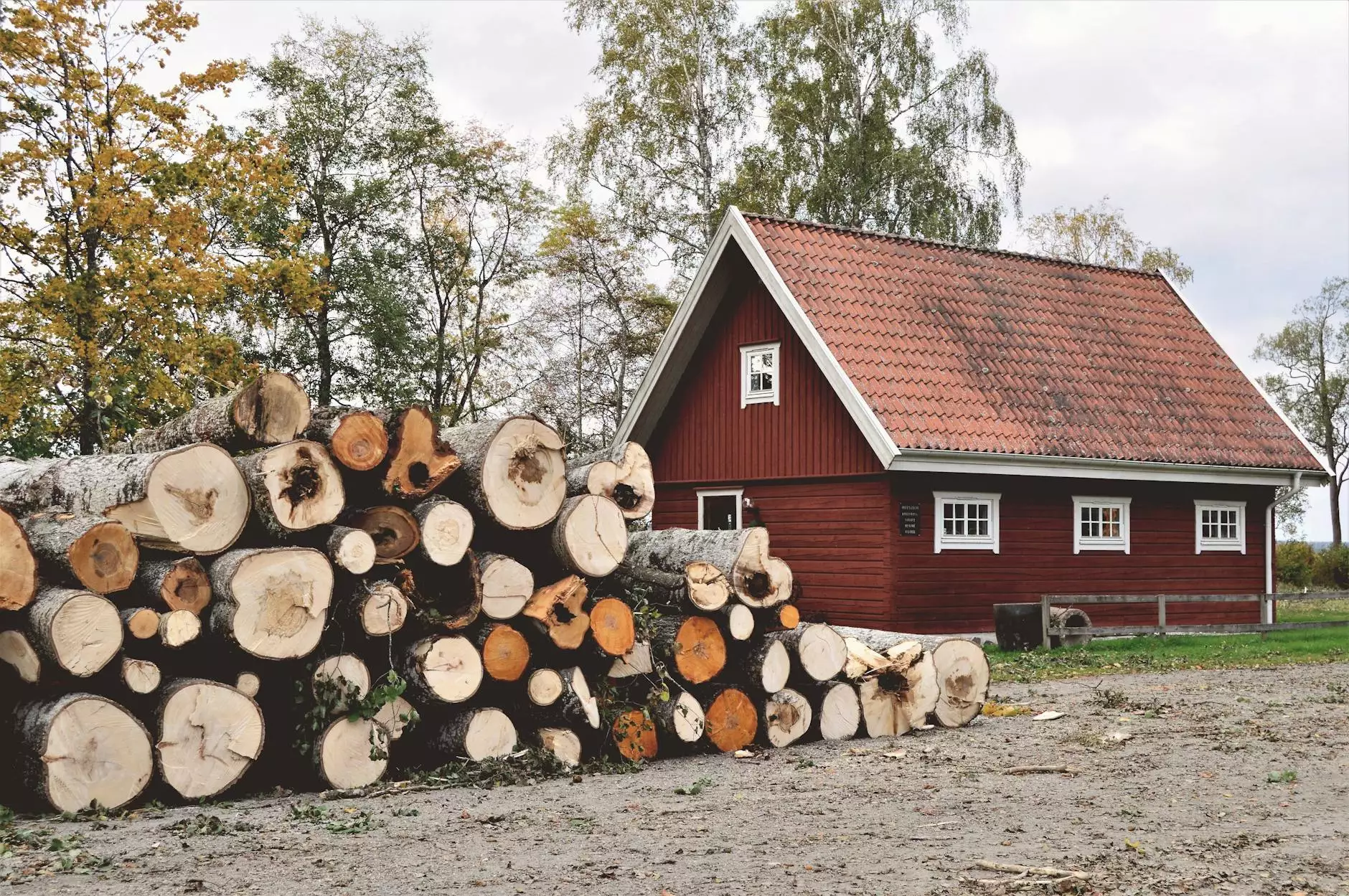The Comprehensive Guide to Timber Merchants and Their Impact on the Industry

Timber merchants play a crucial role in the wood industry, serving as the vital link between timber producers and consumers. This article delves into the multifaceted aspects of timber merchant businesses, exploring their significance, the range of timber products they offer, and their contributions to sustainability and the economy. Through well-researched information and insights, we aim to paint a vivid picture of the timber trade landscape.
What is a Timber Merchant?
A timber merchant is a professional or business that specializes in the buying, selling, and distribution of timber products. These merchants operate within a vast network, connecting timber producers with various industries, including construction, furniture making, and more. Their expertise lies in understanding different types of wood, market trends, and customer needs.
Key Responsibilities of Timber Merchants
- Sourcing Timber: Timber merchants establish and maintain relationships with forests, sawmills, and other producers to source high-quality wood.
- Product Knowledge: They possess extensive knowledge about various timber species, grades, and their respective applications.
- Inventory Management: Merchants manage stock levels, ensuring that a diverse range of products is available to meet customer demands.
- Logistics and Distribution: They coordinate the logistics of transporting timber products from suppliers to end-users efficiently.
- Customer Service: Timber merchants assist customers in selecting the right products, offering advice based on specific project requirements.
The Range of Timber Products Available
Timber merchants offer an extensive assortment of products tailored to various industries. Here’s a closer look at some of the most common timber products available through these merchants:
1. Softwood Timber
Softwood is derived from coniferous trees and is widely used in construction and manufacturing. Common softwoods include pine, spruce, and fir. These timbers are valued for their workability and strength-to-weight ratio.
2. Hardwood Timber
Hardwood comes from deciduous trees, known for their durability, density, and aesthetic appeal. Popular hardwoods like oak, maple, and walnut are often used for furniture, flooring, and cabinetry.
3. Engineered Wood Products
Timber merchants also supply engineered wood products such as plywood, oriented strand board (OSB), and laminated veneer lumber (LVL). These products are designed to provide enhanced performance and stability for construction applications.
4. Specialty Timber Products
Beyond standard offerings, timber merchants may provide specialty timber products, including reclaimed wood, exotic species, and treated timber for outdoor use, catering to niche markets and sustainable construction.
The Importance of Sustainability in the Timber Trade
As environmental concerns rise, sustainability becomes a significant factor in the timber industry. Timber merchants are at the forefront of this movement by promoting responsibly sourced wood and sustainable practices.
1. Responsible Sourcing
Many timber merchants are committed to sourcing timber from managed forests that practice sustainable logging. This ensures that the ecosystem remains intact and biodiversity is preserved.
2. Certification Programs
Merchants often offer timber products certified by organizations such as the Forest Stewardship Council (FSC) and the Programme for the Endorsement of Forest Certification (PEFC). These certifications guarantee that the wood is sourced responsibly and ethically.
3. Reducing Carbon Footprint
Wood is a sustainable material that helps reduce carbon footprints. Timber merchants play a pivotal role in promoting wood's benefits, including its ability to act as a carbon sink throughout its lifecycle.
The Economic Impact of Timber Merchants
The timber trade significantly impacts local and global economies. Here’s how timber merchants contribute to economic growth and development:
1. Job Creation
Timber merchants create jobs not just within their businesses but also throughout the supply chain, from forestry workers to logistics professionals. This broad employment spectrum strengthens local economies.
2. Supporting Local Businesses
By sourcing from local suppliers and forest owners, timber merchants help sustain the local economy, providing a financial boost to communities engaged in forestry and timber production.
3. Export Opportunities
Timber merchants often engage in international trade, exporting high-quality timber products to global markets. This brings revenue into the economy and fosters international business relationships.
Challenges Faced by Timber Merchants
While the timber trade presents many opportunities, it is not without its challenges. Understanding these hurdles helps to appreciate the resilience and adaptability of timber merchants.
1. Regulatory Compliance
Timber merchants must navigate a complex web of regulations regarding logging practices, environmental compliance, and trade laws. Staying updated on these regulations is essential to operate legally and sustainably.
2. Market Fluctuations
The timber market can be volatile, influenced by economic trends, consumer preferences, and global events. Merchants must be agile, adapting their strategies to shifting market conditions.
3. Supply Chain Disruptions
Timber supply chains can face disruptions due to natural disasters, labor shortages, and logistical challenges, affecting the availability and pricing of products.
The Future of Timber Merchants in a Changing World
As the world progresses, the timber industry continues to evolve. Timber merchants are adapting to these changes, positioning themselves for future success.
1. Embracing Technology
The integration of technology into timber trading, such as online sales platforms and inventory management systems, allows merchants to streamline operations and expand their reach.
2. Innovation in Timber Products
Innovation leads to the development of new timber products that meet changing consumer demands and sustainability goals. Timber merchants who embrace innovation can remain competitive.
3. Education and Advocacy
Timber merchants are increasingly taking on roles as educators and advocates for sustainable practices, helping to inform both consumers and policymakers about the benefits of responsibly sourced timber.
Conclusion
In conclusion, timber merchants are indispensable to the wood industry, contributing to economic growth, sustainability, and innovation. As they navigate challenges and embrace future opportunities, their role will only become more critical in the global timber supply chain. It is imperative for both consumers and businesses to recognize the value that timber merchants bring and to support them in their endeavors.
By understanding the comprehensive landscape of timber trading, you can appreciate the intricate connections within the industry and the positive impact that timber merchants have on our world.



